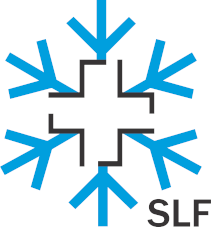Research Institutions
German Aerospace Center (DLR) - Earth Observation Center (EOC)
The Earth Observation Center (EOC) – which consists of the German Remote Sensing Data Center (DFD) and the Remote Sensing Technology Institute (IMF) – is the core institute of DLR’s earth observation activities. The German Remote Sensing Data Center (DFD) is engaged in research, product development, and providing services based on earth observation data from aircraft and satellite platforms. The results of this work support geoscientific and environmental research and applications as well as commercial customers and civil security needs. Research projects focus on developing methodologies for generating customized data products as well as on the assimilation of data in models. The major fields of application are land use, the environment, civil security, climate and atmosphere, and geographic information systems.

Contact DLR-DFD:
Dr. Andreas Dietz, Dr. Celia Baumhoer & John Truckenbrodt
German Aerospace Center (DLR)
Earth Observation Center (EOC)
German Remote Sensing Data Center
Muenchener Strasse 20
82234 Wessling
Germany
Email: Dr. Andreas Dietz
Homepage: DLR - Earth Observation Center
Environmental Earth Observation Information Technology GmbH (ENVEO)
ENVEO Environmental Earth Observation IT GmbH (founded in 2001), has its main business activities in the field of research and development for remote sensing applications in hydrology, cryosphere, and meteorology, including developments of methods and transfer from research to applications and services in hydrology, water management, natural hazards, and climate monitoring. The team has many years of experience in the use of satellite-borne remote sensing for environmental monitoring in national and international projects. They served as consultants and evaluators for activities in Earth observation from space for ESA, NASA the European Commission, and national programs of several countries. Core activities include the development of tools for the exploitation of EO data, satellite-based products and services in cryosphere and land surface monitoring, and the integration of EO data in environmental process models. The main applications fields are climate change monitoring, hydrology, surveys of seasonal snow cover, glaciers and ice sheets, land cover mapping, and monitoring of geo-hazard phenomena.

Contact ENVEO:
Dr. Thomas Nagler & Dr. Gabriele Schwaizer
ENVEO-Environmental Earth Observation Information Technology GmbH
Fuerstenweg 176
6020 Innsbruck
Austria
Email: office@enveo.at
Homepage: ENVEO - HOME
Environment and Climate Change Canada (ECCC)
Environment and Climate Change Canada’s mandate is to preserve and enhance the quality of the natural environment, conserve renewable resources (including water resources), deliver meteorological information, enforce the Canada – United States International Joint Commission relating to boundary waters, and coordinate environmental policies and programs for the federal government of Canada. The Climate Processes Section (CPS; part of the Climate Research Division) carries out research to generate new knowledge on variability and trends in the cryosphere (snow and ice), and the parameterization of cold climate processes in climate models to support improved understanding of past, present, and future climates at regional and global scales. CPS has the mandate to develop, validate, and apply new remotely sensed capabilities for the cryosphere in support of climate monitoring, process studies, and model evaluation. There is a specific emphasis on the cryosphere because it is a major component of the climate system in Canada (and influences much of the northern hemisphere), and has significant impacts on energy, water, and geochemical cycles, northern access and resource development, and the daily lives of all Canadians.

Contact ECCC:
Dr. Chris Derksen & Dr. Benoit Montpetit
Environment and Climate Change Canada
4905 Dufferin St
Toronto, Ontario, M3H 5T4
Canada
Email: chris.derksen@ec.gc.ca
Homepage: Environment and Climate Change Canada
WSL Institute for Snow and Avalanche Research SLF
The WSL Institute for Snow and Avalanche Research SLF is an interdisciplinary research Centre located in the Southeastern Swiss Alps. At SLF, around 150 researchers study snow, the atmosphere, natural hazards, permafrost, and mountain ecological systems and develop innovative products that put their knowledge to practical use. The SLF is part of the WSL, the Swiss Federal Institute for Forest, Snow, and Landscape Research, and therefore belongs to the ETH domain. WSL is currently organized into 12 research units, three of which have their research teams at SLF in Davos. Amongst other services, SLF provides national snowmelt forecasts as part of the federal efforts to assess and mitigate risks associated with natural hazards. In this context, SLF has operational access to data from numerical weather prediction models, which are being used to drive their operational snow hydrological models.

Contact SLF:
Dr. Tobias Jonas
WSL Institute for Snow and Avalanche Research SLF
Flueelastrasse 11
7260 Davos Dorf
Switzerland
Email: jonas@slf.ch
Homepage: SLF Home
McGill University
The School of Computer Science (SOCS) at McGill University is a world-renowned research hub, in particular in the areas of machine learning and AI. Within SOCS, Rolnick Lab is focused on the development of innovative machine learning algorithms in climate action. The Lab’s work spans climate model emulation and downscaling, computer vision for biodiversity monitoring, generative modeling for green materials design, and remote sensing for agriculture, forestry, and other land use. Across application areas, a key theme is multi-stakeholder collaboration and integration of domain-specific information into broader AI frameworks. The Lab collaborates widely with stakeholders from NASA Harvest, UK CEH, and ECCC to Microsoft, IBM, and Google.

Contact McGill:
Prof. Dr. David Rolnick
McGill University
James Administration Building
845 Sherbrooke Street West
Montreal, Quebec H3A 0G4
Canada
Email: david.rolnick@mcgill.ca
Homepage: McGill University
University of Saskatchewan (USASK)
The Centre for Hydrology provides a focus and catalyst for hydrological research at the University of Saskatchewan. The Centre is an interdisciplinary University research cluster designed to bring together and coordinate academic, graduate student, postdoctoral and allied government research staff for research, training and outreach on hydrological issues of local and global importance and to coordinate the University presence in hydrology. It focuses on advancing the theory and practice of hydrology as a physical environmental science and emphasizes research and training related to improving descriptions and explanations of the natural and human factors which control the quantity and quality of water resources. This mission is carried on from the former Division of Hydrology (1962-2001) which conducted and coordinated some of the earliest Canadian hydrology research. The Centre contributes to the Global Institute for Water Security and the Global Water Futures programme. Water resources research at the University of Saskatchewan is especially known for its snow hydrology research where it has the most cited snow hydrology researchers in the world and a 60-year tradition of world-leading snow hydrology research.

Contact USASK:
Prof. Dr. John Pomeroy
Global Institute for Water Security
University of Saskatchewan
11 Innovation Blvd
Saskatoon, SK S7N 3H5
Canada
Email: john.pomeroy@usask.ca
Homepage: Global Institute for Water Security | University of Saskatchewan
